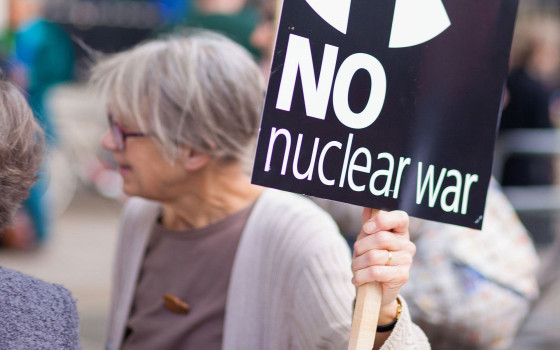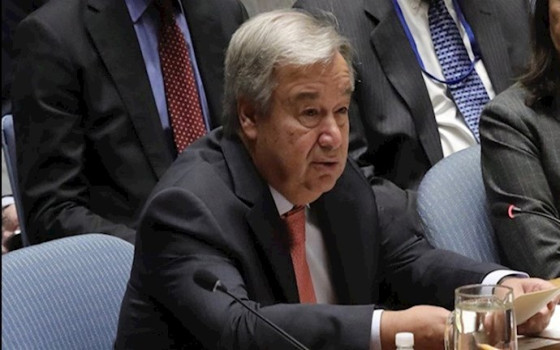Guterres calls for the elimination of nuclear weapons in light of their growing threats

- Europe and Arabs
- Wednesday , 27 September 2023 13:11 PM GMT
New York: Europe and the Arabs
The UN Secretary-General said that while “mistrust and geopolitical competition” have pushed nuclear risks to Cold War levels, the complete elimination of these weapons is the only path to a peaceful future. According to the UN daily news bulletin, a copy of which we received this morning. Wednesday
Secretary-General António Guterres's appeal came in a message he issued yesterday, Tuesday, on the occasion of the International Day for the Total Elimination of Nuclear Weapons.
He warned that the hard-won progress achieved over many decades to prevent the use, proliferation and testing of nuclear weapons was being reversed, calling for nuclear disarmament and the strengthening of the non-proliferation regime.
A new arms race
While participating in a high-level event to commemorate the international day, the Secretary-General said that any use of a nuclear weapon, “at any time, anywhere and in any context, would unleash a humanitarian catastrophe of epic proportions.”
He stressed that this is not an exaggeration, but rather the eternal message to the survivors of the Hiroshima and Nagasaki attacks.
A worrying new arms race is brewing, Mr. Guterres said, as the number of nuclear weapons could rise for the first time in decades and the global disarmament and non-proliferation architecture is eroding.
He added: "Nuclear arsenals are being modernized to make these weapons faster, more accurate, and more stealthy. Nuclear swords are shaking again. This is madness. We must reverse course."
Lead the way
The Secretary-General called on the nuclear states to lead the way in fulfilling their obligations in the field of nuclear disarmament, and to commit not to use them under any circumstances.
He stressed the need to strengthen and recommit to the nuclear disarmament and non-proliferation regime, including the Treaties on the Non-Proliferation of Nuclear Weapons and the Prohibition of Nuclear Weapons, as well as the Comprehensive Nuclear Test Ban Treaty.
He said: "Although the treaty has not yet entered into force, it remains a strong testimony to humanity's will to remove the specter of nuclear annihilation from our world once and for all."
Adopted in 1996, the Comprehensive Nuclear-Test-Ban Treaty has been signed by 185 countries and ratified by 170 countries, including three nuclear-weapon states: France, Russia and the United Kingdom.
However, for the treaty to enter into force, the treaty must be signed and ratified by 44 specific countries possessing nuclear technology, eight of which have not yet ratified, including China, Egypt, India, Iran, Israel, the Democratic People's Republic of Korea, Pakistan, and the United States.
Ending the nuclear threat
The Secretary-General called for the reuse of "the tools of dialogue, diplomacy and negotiation" to ease tensions and end the nuclear threat.
He added that the dialogue should also address the growing interaction between strategic and conventional weapons, and the relationship between nuclear weapons and emerging technologies such as artificial intelligence
“Humans must always be in control of, and responsible for, any decision to use nuclear weapons,” he said.
Mr. Guterres said that the recently launched “New Agenda for Peace” represents a new opportunity to reach a world free of nuclear weapons, and called on all Member States to support this fundamental cause.
He concluded his speech by saying: “The world has spent too long under the shadow of nuclear weapons. Let us step back from the brink of disaster. Let us usher in a new era of peace for all people. Let us make history by consigning nuclear weapons to history.”
It is worth noting that the United Nations General Assembly addressed the issue of nuclear disarmament in its first ever resolution in 1946, and today there are still about 12,512 nuclear weapons threatening the world.














No Comments Found